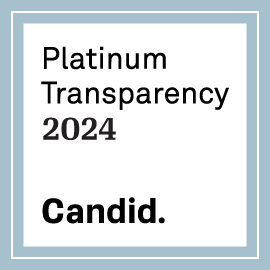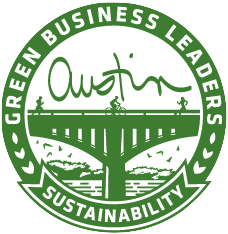Preparing Students for a Resilient Future
In a world where students and their families are more likely to be affected by climate change, community care, and climate solutions become essential topics to discuss in the classroom. Solving the climate crisis doesn’t only involve cutting carbon emissions; it also means protecting people from harm. To create a better world for future generations, communities need climate resilience. This means they should have the ability to cope with and manage the impacts of climate challenges, bounce back, and prevent those impacts from worsening.
EcoRise is excited to announce our new Introduction to Climate Resilience lessons for elementary, middle, and high school teachers! These lessons create a foundation for K–12 students to understand climate resilience and justice in the context of a world that is affected by climate change in many different ways every day. Each lesson activates students’ curiosity, compassion, and critical thinking skills while they learn about climate vulnerabilities and risk, how groups near and far are affected by climate change, and how just and resilient collective action is leading to solutions.
The new Introduction to Climate Resilience lessons are included in our Sustainable Intelligence curriculum. Sign up to access these new lessons and many more in our new course catalog here.
“The Climate Resilience lessons went great—especially since my students are Louisianans who have all had no choice but to adapt to life with hurricanes. I really liked that the unit addressed eco-anxiety because our students have all lived through Hurricane Ida, the Flood of 2016, and other natural disasters.”
—Tyler S. Coleson, Baton Rouge Teacher
What You’ll Find in the Lessons
In the lessons for elementary grades, students consider how people are impacted differently by weather emergencies and how we can help each other when weather emergencies occur. The middle and high school lessons guide students to consider how community climate resilience can be fostered and built up. Activities in these lessons include critically analyzing case studies on climate resilience around the U.S., role-playing a climate resilience town hall meeting, and planning collective action that contributes to addressing climate vulnerabilities and injustices in their school and wider community.
Our lesson plans contain everything teachers need to expertly bring climate resilience into the classroom. As with EcoRise’s Introduction to Environmental Justice lessons, our new lesson plans include a “Preparing Your Mindset” section which provides strategies for introducing sensitive topics such as equity and justice and addressing eco-anxiety for students and teachers alike. There is also background information and ideas for differentiation and cultural adaptations. All sessions can be taught independently or sequentially and adapted to fit the needs and contexts of individual classrooms. Teachers are encouraged to consider their local community’s unique climate challenges and strengths and incorporate these into the lessons to help students connect what they are learning to their everyday lives.
 These lessons are CLEAN approved, meaning they have been peer-reviewed by the Climate Literacy and Energy Awareness Network (CLEAN). The CLEAN Educational Resource Collection provides educators with high-quality, vetted resources that help grow climate and energy literacy in K–12 classrooms. 5th-12th grade educators are also using these lessons to engage students in game design for social good. EcoRise is a thematic partner of the Games4Change Student Challenge in 2024, a game design competition inviting youth to create digital and tabletop games inspired by the United Nations Sustainable Development Goals.
These lessons are CLEAN approved, meaning they have been peer-reviewed by the Climate Literacy and Energy Awareness Network (CLEAN). The CLEAN Educational Resource Collection provides educators with high-quality, vetted resources that help grow climate and energy literacy in K–12 classrooms. 5th-12th grade educators are also using these lessons to engage students in game design for social good. EcoRise is a thematic partner of the Games4Change Student Challenge in 2024, a game design competition inviting youth to create digital and tabletop games inspired by the United Nations Sustainable Development Goals.
Evolving Our Resources Through Educator Input
The Introduction to Climate Resilience lessons are the result of months of collaboration between the EcoRise curriculum team and Unbounded Associates. We also had crucial support and feedback from EcoRise Teacher Ambassadors Amelia Cook and Kendra Heffelbower.
The lessons incorporate a wide range of teacher feedback that has been collected over the last four years as part of an audit of the EcoRise curriculum library. For example, on the content side, these lessons aim to do a better job of centering Native American communities and Indigenous ways of knowing. Session one of the high school lesson includes real-life examples that highlight how Indigenous communities face ongoing injustices that compound the effects of climate change and the effective strategies they are leveraging to foster climate resilience.
From an accessibility perspective, the lesson plan was redesigned so that the Activity Breakdown section comes first, giving teachers a quick “at-a-glance” overview of what the lesson involves. The powerpoint presentations are now editable, making it easier for teachers to modify the resources based on their unique contexts and needs. Lastly, EcoRise has developed an interactive standards-alignment matrix, which includes the Introduction to Climate Resilience lessons, to help educators quickly search EcoRise lessons for keywords and alignment to various academic standards.




